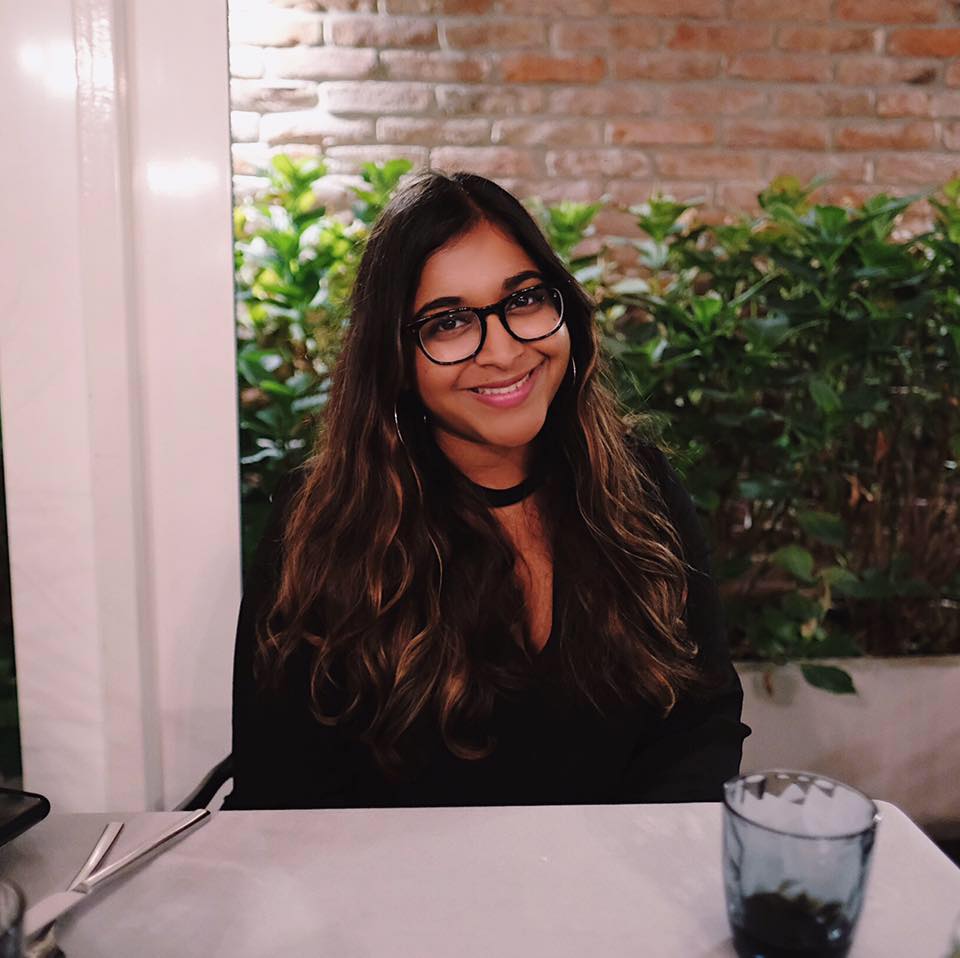
How I’m Preserving My Family’s Story
Documenting The Stories Worth Keeping
It was the first night of Diwali, the annual five-day Festival of Lights celebrated by millions of Hindus, Sikhs, Jains, and Buddhists around the world. I sat down with my parents in front of our miniature home temple.
We were celebrating Dhanteras, the auspicious—and supposedly lucrative—kickoff to the most important days of the year. As I held the small plate of offerings hoping for blessings, my mom recited the Namokar Mantra (a Jain prayer) while my dad followed along in an old prayer book that had belonged to my grandmother.
I had never sat with them to do this puja before, and I didn’t have all of the prayers memorized or fully understand the context of the day. Then when I thought about it, I realized that I would have avoided learning about or participating in these activities for most of my life. In fact, I probably would have rolled my eyes at them. (Ah, teenage angst.)
“So much of my family’s history will be lost if I don’t work to preserve it now.”
But this time was different. It was the first time in a decade I had been physically in our house to celebrate with my parents, and it felt like coming home with fresh eyes.
I’m reminded of a stat often attributed to Donn Felker: By the time you’ve finished high school, more than 90 percent of the time you spend with your parents is gone. This particularly hits home for me (pun intended) this year since my dad turned 70. I’ve become painfully aware that our time together is fleeting—once that time is gone, I can’t get it back.
But there’s another reason, too. So much of my family’s history will be lost if I don’t work to preserve it now.
Because, as a first-generation child in the US, I’ve grown up with American culture; that’s all I’ve known. But in immigrant families like mine, losing my parents means losing my family’s traditions, cultural nuances, and storied pasts—like what Dhanteras is and why we celebrate it.
And the process of losing my family’s background has already started. While I still understand our native language of Gujarati, I find it increasingly difficult to speak. When my grandmother passed, I had to accept I wouldn’t be able to recreate her papad ever again, food I had taken for granted as a barely thirteen-year-old and still miss today. I know the same will happen with my mother too, and restaurant versions of her spicy mircha, street-style sev puri, or pav bhaji won’t cut it.
“In immigrant families like mine, losing my parents means losing my family’s traditions, cultural nuances, and storied pasts.”
For the last few years, I’ve been on a mission to preserve my family’s story. The anecdotes I’ve heard a million times and the ones I’m just now hearing for the first time—like how my father learned to drive automatic in a Toyota Corolla in North Jersey, the same streets I’d later drive on as an adult in my own Corolla. Or the fact that I was partially named after Henna, a 1991 Bollywood movie I didn’t even know about until writing this piece.
There is still so much I want to know about my parents and our lineage, and I’m lucky to still have them around to ask. Here’s how I’ve been documenting their lives, and how you can do the same with your loved ones.
1. Find Your Medium
I suppose it’s no surprise that I’ve chosen to write about my family’s background and traditions as my preferred method of documentation.
“The most important question I’ve asked myself is, ‘What will best represent and honor my family’s story?’”
Maybe for you and yours, it’s pasting together scrapbooks, displaying heirlooms, sewing a multigenerational quilt, crafting a recipe book, or recording family interviews. (I love some of the featured family gifts here for inspiration.) My husband recently gifted his family a digital frame, so they could preserve photographs that might otherwise be lost in a box or attic.
The most important question I’ve asked myself is, “What will best represent and honor my family’s story?” Not only does writing feel most natural to me, but it is also most fitting for my parents, considering they left most of their tangible family possessions back in India and could more easily speak to their lived experiences.
2. Consider What To Ask
When I first sat down to document our family story, I remembered—as we often forget—that my parents had entire lives, before I ever entered the picture. So I start right at the beginning in childhood then moved ahead in chronological order.
I began with broader questions like, What do you remember about growing up in Jher? How did you spend your free time? What classes did you take in school—which did you enjoy the most? No detail is too small, no question too minor to ask.
“No detail is too small, no question too minor to ask.”
As my parents went through the questions, I furiously transcribed their answers into a Google Doc. I didn’t worry too much about editing or flow; it was more important to get their responses on paper. If I had to do it again, I’d record their responses on audio then transcribe. I’m sure I missed important points in my haste (plus, it’s a comforting reminder of their voices).
When their answers began to fizzle out on the details or they couldn’t remember, I tried to shift to more specific questions instead like, Which sibling did you spend the most time with and why? What was your favorite outfit that you remember? How long was the walk to school? Their detailed responses enriched both my writing and the visuals I could now imagine in my head—like my dad as a child heading to school two hours away.
Though this process was more organic with my parents and questions flowed freely, you can compile a list of what’s most important to know ahead of time, especially if you have limited time or space (like post-Thanksgiving dinner, when many generations often come together).
Need a place to start? Here are 150 questions to consider asking family members.
3. Consider Broader Cultural Contexts, Too
My parents’ memories aren’t all I want to honor. I’ve additionally asked for details on religious holidays and our traditions, as well as context about our particular family nuances.
In India, holidays differ vastly from Western culture, so we don’t often get to celebrate them with the same weight as, say, Christmas in the US. And as a child who grew up embarrassed to feel like an outsider, I wanted to avoid celebrating unique-to-us holidays. Along the way though, that meant forgetting what traditions were most important or even knowing about certain celebrations at all.
“Without my parents, I would have never known about this equally important holiday.”
For example: Growing up, we celebrated Raksha Bandhan, a day honoring the bond between brothers and sisters. Sisters tie a bracelet known as a “rakhi” on their brothers, as a symbol of protection. In exchange, brothers give their sisters money or presents, a tradition I loved and didn’t care to ask why. 😉
But I didn’t know about Bhai Bij, a similar holiday celebrated near Diwali time. I only learned about the day more recently, where sisters host lavish feasts at their home for their brothers and gifts are exchanged. Without my parents, I would have never known about this equally important holiday or how our family celebrates it.
For multicultural families or third-culture children—like my husband, Jovanni—those traditions and contexts can be twice as complicated. Jovanni, who’s half Filipino and half Puerto Rican, knows that there are aspects of his background he’ll never know about if he doesn’t ask.
“Those traditions ground [my husband’s] understanding of his family and their respective cultures.”
But one part of both cultures that he’s intimately familiar with? Food. He grew up around pancit and lumpia at family dinners, and still tops off his Thanksgiving plates with pernil and arroz con gandules. Those traditions ground his understanding of his family and their respective cultures.
Here are some relevant questions you can ask your family about culture and traditions (and you can find more here):
What are the most important holidays to celebrate?
Do we have any unique traditions in our family? If so, how do they work?
Which cultural aspects are most important to our family? Food, clothes, music, movies?
4. Share It Back
I want my parents to be a part of this process, rather than just the focus of it.
That’s why I’ve shared my writing with them (21 Google Doc pages and counting), asking for clarification and opportunities to make the memories more robust, like with pictures or recipes. This has ensured my writing is as accurate and representative as it can be, and asking for their sign-off has been a sign of respect. The stories I plan to share with future generations have been “approved” by them.
Our stories aren’t static; they’re dynamic and ever-changing one day after the next. Setting the foundation now will inevitably ease the process of preserving their stories later. That means we can continue keeping this in mind to honor newer family memories, too.
“Our stories aren’t static; they’re dynamic and ever-changing one day after the next.”
Next year, maybe I can take the lead and host our Dhanteras puja or the Diwali party—because I finally understand why it’s so important to my family.
Now that I’m closer to my childbearing years, I’ve been reflecting on what I want to teach my future children with my husband, in a mixed Indian, Puerto Rican, and Filipino household. I want our kids to not just know our parents’ names and birthdates, but to also understand their lineage and how they came to exist one generation after another. What our families had in common, what they didn’t and was unique to them, and what part they’ll play in our family legacy, forever.
Henah Velez (she/her) is an Editor at The Good Trade. She holds a Master’s in Social Entrepreneurship and is a proud Rutgers grad. Originally from NJ, Henah’s now in Santa Barbara, CA, where she loves shopping small, hanging with her pets, or traveling. Say hi on Instagram!





